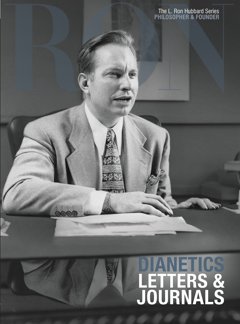Dianetics Fundamentals Explained
Wiki Article
Things about Dianetics
Table of ContentsWhat Does Dianetics Mean?The Only Guide for DianeticsThe Ultimate Guide To DianeticsGet This Report on Dianetics
I couldn't ever not intend to get anything that comes to mind for you- if it was or else, I wouldn't be sitting here with you, doing this. I not just could never ever have an issue, or otherwise desire to hear something that comes to mind for you, but I'm entirely anxious to know every concept, every thought, every picture or feeling that arises or materializes for you- don't ever assume otherwise, and if for one reason or another you do, please just let me understand! In some cases, you may have a thought, and photo, concept or incident turn up that does not appear to address the question, or associate to it, yet nonetheless, always do tell me concerning it, and as we continue, the relevance will arise for you.This is intrinsic in the basis of processing, and the topic of this conversation: the basic roles of the counselor and the client: The standard duty of the therapist is, unlike "typical training", not to manage, which means to enforce and/or prevent, yet to instead function from the basis of EMPOWERING THE CLIENT.

What Does Dianetics Mean?
John Mcmasters expressed this basic truth splendidly well in one of his talks on Power processing, in which he describes just how he was asked what this "special flair" was that he had for offering such great sessions; he had to assume about that for a minute, and detected that it was what he had not been doing, in addition to what he was doing: he wasn't reviewing, judging, computing, or in fact, generating any type of ideas, let alone verbal expressions, after providing the command and while awaiting the computer to finish their solution to their complete satisfaction; he was, simply and only, being existing with the computer, and entirely interested.The duty of the counselor, showed; that was his "special knack". I have had my own experience which taught me this well, extremely beforehand in the video game. In 1982, having lately completed my look at this website training and internship on New Age Dianetics, I was running this on a COMPUTER, and there was a factor in the session where (being a little bit damp behind the ears not yet having numerous hours under my belt as a professional auditor) the PC appeared to be "taking too lengthy" to share anything vocally after I provided him a command.
This trick transformed out to be one of the most important payment that John ever made to the topic of therapy or auditing (Dianetics). In my simple viewpoint, it is the best contribution that anyone has actually ever made to these subjectsthe application is completely non-judgemental, non-evaluative, and devoid of any idea, suggestions or opinion.no preconditioned agenda for individuals, or 'degrees' that they should do
In Scientology we prided ourselves on not evaluating for individuals. All that actually suggested was that the auditor did not VERBALLY evaluate for the PC in session.
Getting My Dianetics To Work

Any person that had actually ever seen John audit might not aid yet discover an one-of-a-kind quality in his auditing."The client's fundamental function is to be there with the function of relocating the instructions hop over to here of their spiritual goals, and to openly and completely share and experience whatever materializes for them in answering the inquiries and executing the directions in the handling.
This is something to process as required. Additionally, people often have previous experience and/or brainwashing in auditing/processing which, in some ways, and to some degrees, really deceives them right into mindsets, ideas and actions patterns that avoid the complete awareness of content these roles, and so they will certainly tend to inhibit the expressing of what comes to mind, as in the examples given above - Dianetics. * The first, and possibly leading examples of mis-indoctrination bring about much less than entirely smooth and reliable sessions, can be located in certain elements of the training regimens, or "TR's":"TR's" are commonly a person's initial, or a minimum of early, experience in Scientology, and while I will certainly take place to clarify what I view as the defects in principle and practice, nevertheless, have a tendency to be considerably therapeutic, done as they are given (Hubbard firmly insists that "TR's are not processing, they are educating", yet factually, they are both handling AND training)
There is no "flunking", and no denial of the reality of this being handling. The focus, as it ought to be, is on experiencing the other person's visibility.
Excitement About Dianetics

Report this wiki page